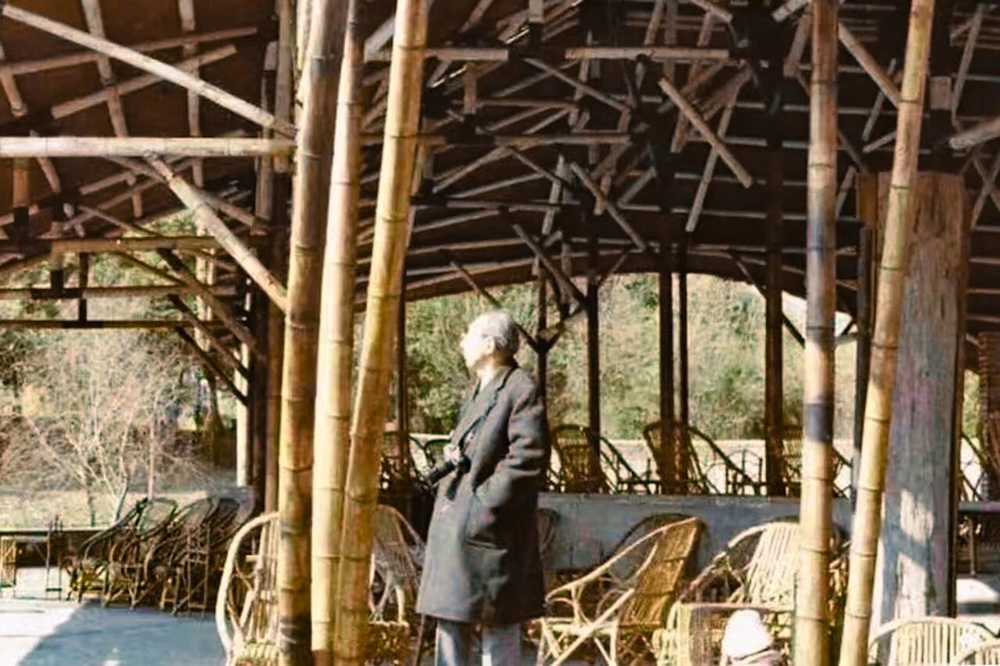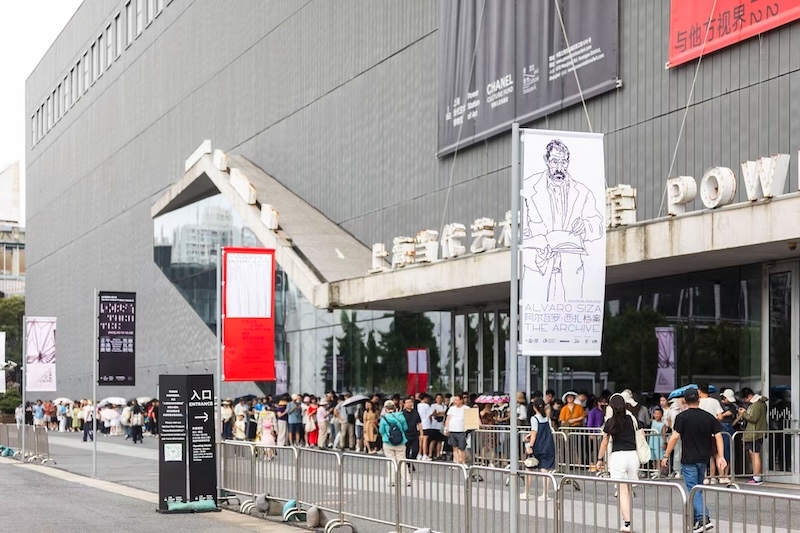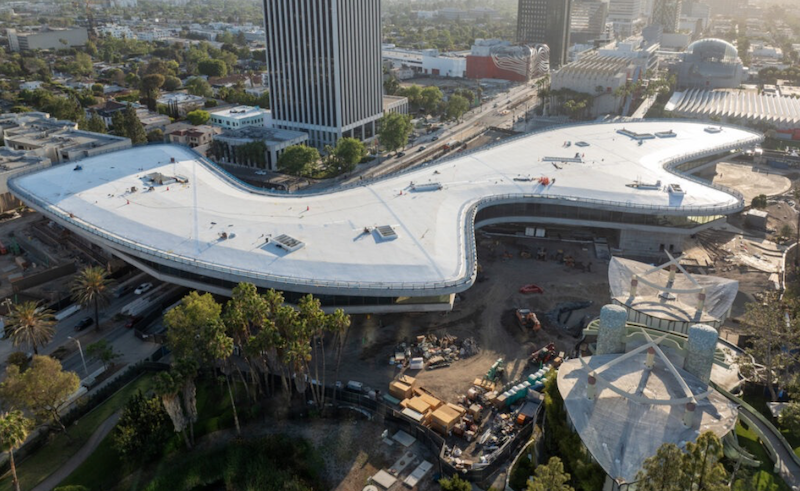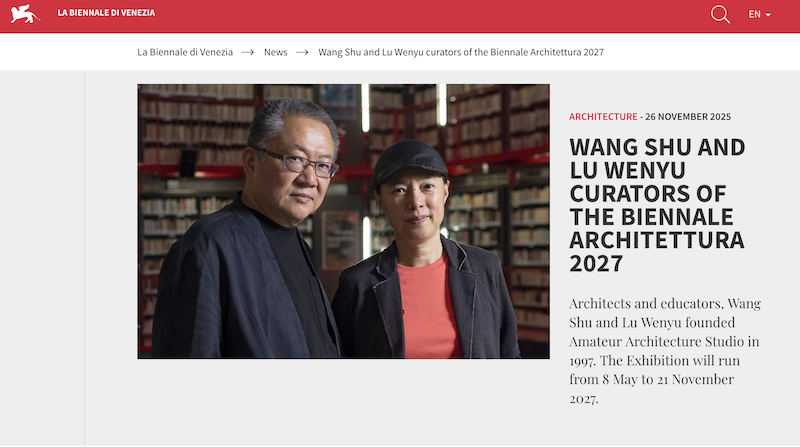
The Paper learned that the official website of the Venice Biennale announced on November 26 that, upon the recommendation of Pietrangelo Buttafuoco, Chairman of the Board of Directors of the Venice Biennale, Chinese architects Wang Shu and Lu Wenyu will serve as the chief curators of the 20th Venice Biennale in 2027. This is the first time that Chinese architects have served as chief curators since the exhibition began.
Wang Shu and Lu Wenyu are a model couple in the architectural world. Wang Shu is China's first Pritzker Prize laureate (2012), an architect and educator, while his wife, Lu Wenyu, is also an outstanding architect, having won the 2019 Tausig Madelta Gold Medal. The two met while pursuing their graduate studies at Southeast University, and after graduating and getting married, they established their studio, embarking on a remarkable architectural career.

Venice Biennale official website news
In 1997, the two co-founded an amateur architecture studio. In 2003, they jointly established the Department of Architecture at the China Academy of Art, and in 2007, they established the School of Architecture, with Wang Shu serving as its first dean and Lu Wenyu as the director of the Center for Sustainable Construction. They participated in the China Pavilion at the 2006 Venice Architecture Biennale and were invited to exhibit by Sejima (2010) and Alejandro Alavina (2016). Their work "The Decaying Dome" received a special mention in 2010.
Regarding the selection of the chief curator for this year's Venice Architecture Biennale, Pierlangero Butafoco, Chairman of the Board of Directors of the Venice Biennale, stated, "Wang Shu and Lu Wenyu's architectural philosophy, rooted in the understanding of place memory and construction techniques, holds significant value in the current international architectural discourse on the meaning of human habitation. The Biennale recognizes them as leading figures in the architecture industry, capable of integrating cultural responsibility with experimental spirit, making outstanding contributions in this era that demands wisdom, balance, and imagination. Their leadership will inspire broad and necessary reflection, propelling the 2027 Venice Architecture Biennale to expand new perspectives and create a new paradigm for understanding the relationship between space, memory, and social community."

Pietrangelo Buttafuoco, President of the Venice Biennale, at the opening ceremony of the 60th Venice Biennale art exhibition.
The Venice Biennale website also published Wang Shu and Lu Wenyu's reply, in which they stated, "We thank the Venice Biennale Board for their trust in us. We will do our utmost to meet this challenge. In today's world, the rapid pace and variability of architecture are more of a superficial phenomenon, a result of excessive conceptualization or commercialization. Extreme conceptual experiments often detach from reality, while excessive commercialization is often just a flash in the pan. This phenomenon, with its rapid turnover for survival, will ultimately lead to the demise of architecture. Architecture thus becomes a kind of illusory expression of the future. Precisely because of this, in the face of the real crisis in this world, it is particularly important to adhere to a simple and authentic architectural philosophy and methodology. We will strive with the utmost sincerity to present this value and exploration, for a better reality and future."
The Biennale's official website also lists the resumes of the two individuals. Wang Shu served as the Kenzo Tange Visiting Professor at Harvard University's Graduate School of Design (GSD) in 2011. He is currently a visiting professor at MIT, University College London (UCL), Rice University, the University of Hong Kong, and Tongji University. He won the Pritzker Architecture Prize in 2012 and was elected a member of the French Academy of Architecture in 2023. Lu Wenyu has served as a visiting professor at Harvard University's Graduate School of Design, MIT, UCL, and Rice University, and has served as a jury member for the UNESCO Asia-Pacific Heritage Conservation Prize and as the chairman of the jury for the 2024 RIBA International Prizes.
In 2012, Wang Shu won the Pritzker Architecture Prize, becoming the first Chinese architect to receive this honor. The Pritzker Prize citation praised Wang Shu, stating: "The appropriate relationship between the past and the present is a crucial issue today, as China's current urbanization process is sparking a debate about whether architecture should be based on tradition or only look to the future. Like all great architecture, Wang Shu's work transcends this debate, evolving into timeless and universally relevant architecture rooted in its historical context."

The recently opened Xi'an Grand Theatre

Xi'an Grand Theatre
Wang Shu and Lu Wenyu consistently focus on existing materials, traces of ordinary people's daily lives, the vitality of nameless and ordinary buildings, and the craftsmanship and artistry of construction sites, advocating innovative experiments rooted in local context and rural traditions. Their studio integrates recycled old building materials with modern engineering technology, allowing memory and innovation to converge, providing a powerful response to the reality of large-scale demolition and reconstruction in urban development. They maintain a broad international perspective, conveying through their works innovative concepts that transcend urban-rural cultural conflicts and resolve the opposition between the artificial and the natural. Their representative works include: Hangzhou National Museum of Art, China Academy of Art Xiangshan Campus, Ningbo Museum, Southern Song Imperial Street Conservation and Renewal, Lin'an Museum, Wu-Yue Culture Museum, Fuchun Mountain Museum, Paleozoological Museum of China, Xiamen Jinsha Academy, and Xi'an Grand Theatre.

Hangzhou National Version Library

Library of Wenzheng College, Soochow University
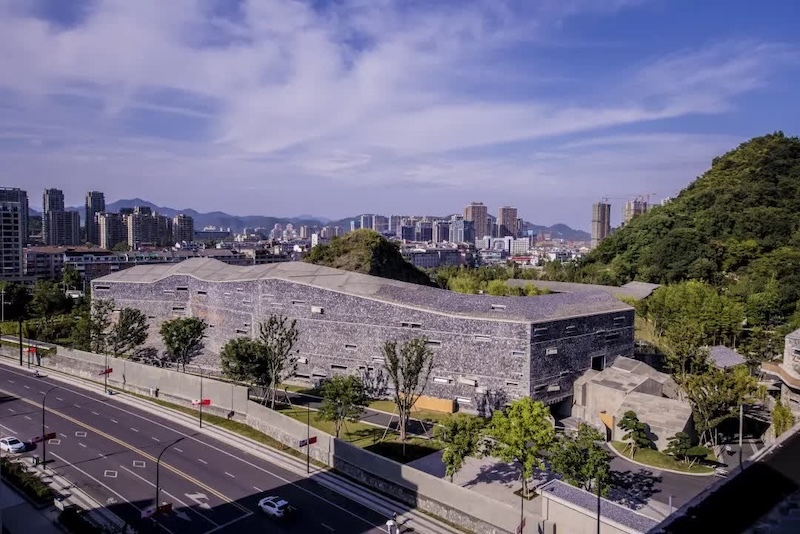
Hangzhou Lin'an Museum
Among them, the Xiangshan Campus of the China Academy of Art, designed by them, was named one of the "25 Most Important Buildings Since World War II" by The New York Times in 2021. The Oriental Morning Post, the predecessor of The Paper, wrote in a related commentary: "The most commendable aspect of the Xiangshan Campus is the harmony between architecture and the natural environment. The campus incorporates the Xiangshan Nature Reserve as a natural landscape, with small bridges and flowing water connecting the north and south sides of the campus, organically integrating mountains, water, buildings, and people. The pastoral scenery far from the city allows people to temporarily forget the encroachment of industrial civilization. The campus mainly uses "traditional Chinese building materials such as gray stone and wood, combining Chinese tradition with architecture, and using 2 million old tiles from demolished old buildings to pave the roofs of the new university buildings"... Wang Shu's early works possessed a subversive form and were once considered "heresy" in the domestic architectural community. Wang Shu's subversive designs initially stemmed from a desire to resist the "rigid" architecture of Europe and America, and his anti-industrialization tendencies are clearly evident in his use of materials.

China Academy of Art, Xiangshan Campus

China Academy of Art, Xiangshan Campus
The 19th Venice Architecture Biennale, curated by Carlo Latti, closed on November 23, 2025. According to statistics, the exhibition sold 298,000 tickets, a 5% increase compared to the 18th edition in 2023, and 17,584 visitors attended the preview, making it the most-attended edition in the history of the Venice Biennale.

The 19th Venice International Architecture Biennale closed on November 23.
In 2027, the 20th Venice Biennale, with Wang Shu and Lu Wenyu as chief curators, will be held from May 8 to November 21, 2027.
